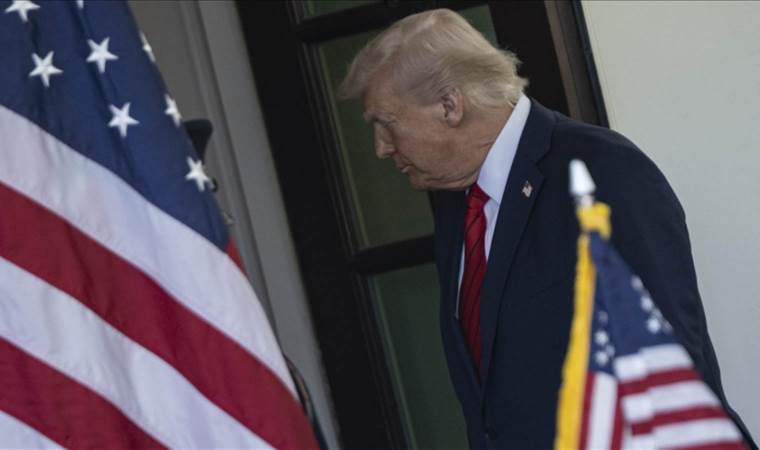Kremlin says Trump’s reaction to latest Russian strikes on Ukraine ‘emotional overload’
The Kremlin on Monday said US President Donald Trump’s reaction to the latest Russian strikes on Ukraine is connected to “emotional overload.”

On Sunday, Trump wrote on Truth Social that his Russian counterpart Vladimir Putin has gone “absolutely CRAZY” as Russia launched airstrikes on Ukraine for the third consecutive night in a row.
“I’ve always said that he wants ALL of Ukraine, not just a piece of it, and maybe that’s proving to be right, but if he does, it will lead to the downfall of Russia!” Trump said.
Separately, Trump said "I'm not happy with what Putin's doing."
"I don't know what's wrong with him. What the hell happened to him? Right? He's killing a lot of people. I'm not happy about that," Trump told reporters at the airport in Morristown, New Jersey.
Ukraine’s Air Force claimed early Monday that it downed 288 out of 355 drones and nine Kh-101 cruise missiles launched by Russia overnight.
“Of course … this is a very important moment, which is connected, of course, with the emotional overload of absolutely everyone, and with emotional reactions,” Kremlin spokesman Dmitry Peskov told journalists in Moscow.
Peskov said they are closely monitoring all reactions, and Putin is “making the decisions that are necessary to ensure the security of our country.”
He said the start of direct talks between Russia and Ukraine is a "very important achievement," and the US has made “great efforts” in this regard.
“And we are truly grateful to the Americans and personally to President Trump for their assistance in organizing the launch of this negotiation process,” he said, indicating that there was consensus yet on the timing and venue for a second round of negotiations after the first in three years in Istanbul.
The spokesman expressed Russia’s gratitude to Türkiye for holding the first round, and that work was continuing on a draft regarding a possible peace deal.
The talks on May 16, which were facilitated by Türkiye, concluded with the two sides agreeing to a large-scale exchange of prisoners involving a total of 1,000 people from each side and to continue negotiations for a truce.
Most Read News
-
 'Europe must defend itself, depend on itself', says EU C
'Europe must defend itself, depend on itself', says EU C
-
 Putin says 2025 marked 'important stage' in Ukrainian co
Putin says 2025 marked 'important stage' in Ukrainian co
-
 Trump orders oil tankers blockade in Venezuela, labels M
Trump orders oil tankers blockade in Venezuela, labels M
-
 Louvre to remain closed as staff vote to extend strike o
Louvre to remain closed as staff vote to extend strike o
-
 Populist Czech government rejects EU's migration pact
Populist Czech government rejects EU's migration pact
-
 German church group calls for halt in arms exports to Is
German church group calls for halt in arms exports to Is
-
 Maduro warns of ‘new Vietnam’ after Trump orders Venezue
Maduro warns of ‘new Vietnam’ after Trump orders Venezue
-
 Syrian foreign minister phones Ahmed al-Ahmed, who heroi
Syrian foreign minister phones Ahmed al-Ahmed, who heroi








